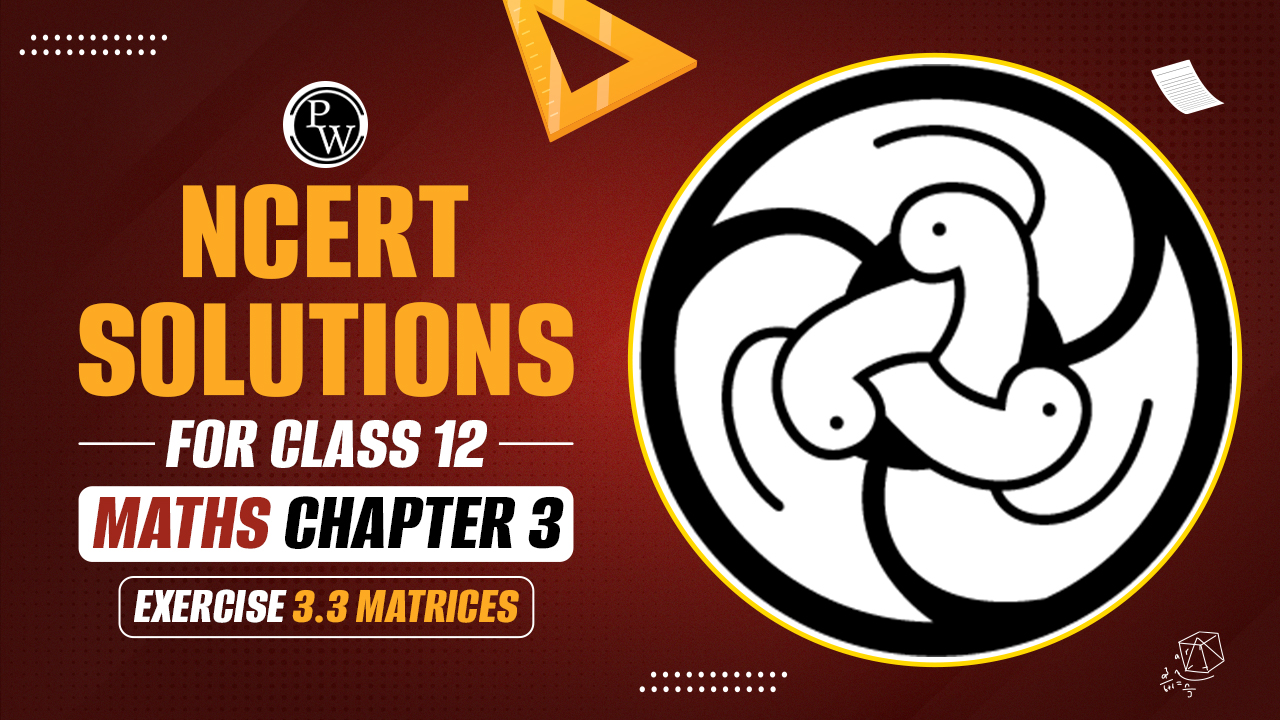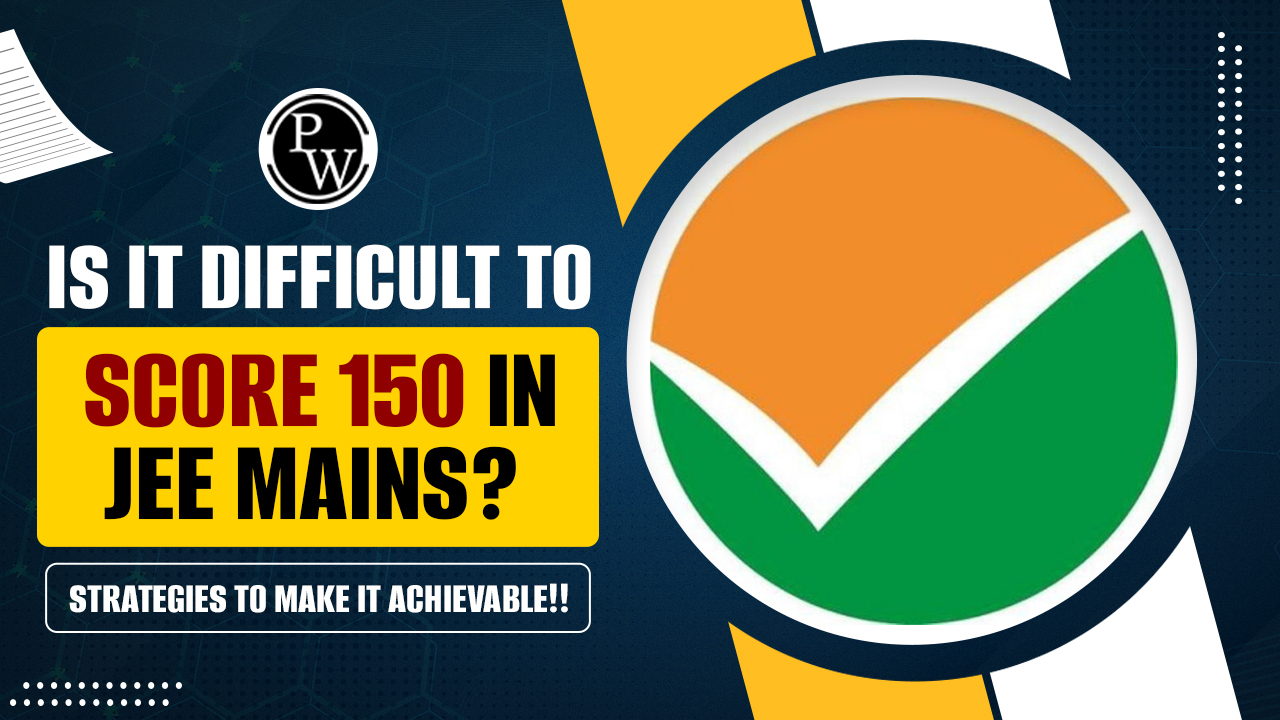NCERT Solutions for Class 12 Maths Chapter 3 Exercise 3.3 Matrices

Class 12 Maths Chapter 3 Exercise 3.3 Matrices:- Matrices are a fundamental concept in mathematics, widely used in various fields such as physics, computer science, and engineering. Chapter 3 of the Class 12 Maths NCERT textbook focuses on Matrices, providing students with a comprehensive understanding of their properties, operations, and applications. Get the NCERT Solutions for Class 12 Maths Chapter 3 Exercise 3.3 Matrices from the below article.
Check out: CBSE Class 12th Books
NCERT Solutions for Class 12 Maths Chapter 3 Exercise 3.3 Matrices
Here are the NCERT Solutions for Class 12 Maths Chapter 3 Exercise 3.3 Matrices below:-
Question1. Find the transpose of each of the following matrices:
(i)
(ii)
(iii)
Solution :
(i) Let A =
Transpose of A = A’ or AT = [ 5 1/2 -1]
(ii)
Transpose of A = A’ or AT=
(iii)
Transpose of A = A’ or AT=
Question2. If then verify that:
(i) (A + B)’ = A’ + B’
(ii) (A – B)’ = A’ – B’
Solution :
Question3. If then verify that:
(i) (A + B)’ = A’ + B’
(ii) (A – B)’ = A’ – B’
Solution :
Question4. If then find (A + 2B)’.
Solution :
Question5. For the matrices A and B, verify that (AB)’ = B’A’, where:
(i)
(ii)
Solution :
Check out: Class 12th Sample Papers
Question6. (i) If A = then verify that A’A = I.
(ii) If A = then verify that A’A = I.
Solution :
Question7. (i) Show that the matrix A = is a symmetric matrix.
(ii) Show that the matrix A = is a skew symmetric matrix.
Solution :
(i) Given: A =
Changing rows of matrix A as the columns of new matrix A’ = = A
∴ A’ = A
Therefore, by definitions of symmetric matrix, A is a symmetric matrix.
(ii) Given: A =
A’ = = –
= – A
∴ A’ = – A
Therefore, by definition matrix A is a skew-symmetric matrix
Question8. For a matrix A = verify that:
(i) (A + A’) is a symmetric matrix.
(ii) (A – A’) is a skew symmetric matrix.
Solution :
Question9. Find 1/2 (A + A’) and 1/2(A – A’) when A =
Solution :
Question10. Express the following matrices as the sum of a symmetric and skew symmetric matrix:
(i)
(ii)
(iii)
(iv)
Solution :
(iii)
(iv)
Choose the correct answer in Exercises 11 and 12.
Question11. If A and B are symmetric matrices of same order, AB – BA is a:
(A) Skew-symmetric matrix
(B) Symmetric matrix
(C) Zero matrix
(D) Identity matrix
Solution :
Given: A and B are symmetric matrices ∴ A = A’ and B = B’
Now, (AB – BA)’ = (AB)’ – (BA)’ ∴ (AB – BA)’ = B’A’ – A’B’ [Reversal law]
∴ (AB – BA)’ = BA – AB [From eq. (i)] ∴ (AB – BA)’ = – (AB – BA)
∴ (AB – BA) is a skew matrix.
Therefore, option (A) is correct.
Question12. If A = , then A + A’ = I, if the value of α is:
(A) π/6
(B) π/3
(C) π
(D) 3π/2
Solution :
Therefore, option (B) is correct.
Check out: School Books
Class 12 Maths Chapter 3 Exercise 3.3 Matrices Summary
Matrix Addition and Subtraction:
-
If AAA and BBB are two matrices of the same order, their sum C=A+BC = A + BC=A+B is a matrix of the same order, with each element given by cij=aij+bijc_{ij} = a_{ij} + b_{ij}cij=aij+bij.
-
Similarly, for matrix subtraction, C=A−BC = A - BC=A−B with each element cij=aij−bijc_{ij} = a_{ij} - b_{ij}cij=aij−bij.
Scalar Multiplication:
-
For a matrix AAA and a scalar kkk, the scalar multiple kAkAkA is obtained by multiplying every element of AAA by kkk.
Matrix Multiplication:
-
If AAA is an m×nm \times nm×n matrix and BBB is an n×pn \times pn×p matrix, their product ABABAB is an m×pm \times pm×p matrix.
-
Each element of the product matrix is calculated as (AB)ij=∑k=1naikbkj(AB)_{ij} = \sum_{k=1}^{n} a_{ik} b_{kj}(AB)ij=∑k=1naikbkj.
Properties of Matrix Multiplication
-
Associative and distributive properties hold for matrix multiplication, similar to real number multiplication.
-
The scalar multiplication of a matrix by a constant multiplies each term of the matrix by the constant.
-
Exercises will involve proving these properties and applying them to solve problems.
Inverse of a Matrix
-
Not all matrices have inverses. An inverse of a matrix A is a matrix B such that AB = BA = I (identity matrix).
-
Exercises will involve finding the inverse of matrices (if it exists) and using them in calculations.
Check out: Class 12th Question Banks
Class 12 Maths Chapter 3 Exercise 3.3 Matrices FAQs
Q1. How do you add two matrices?
Ans. Two matrices can be added if they have the same order. The sum is obtained by adding corresponding elements of the matrices.
Q2. Can you subtract matrices of different orders?
Ans. No, matrices must have the same order to be subtracted.
Q3. What is scalar multiplication of a matrix?
Ans. Scalar multiplication involves multiplying every element of a matrix by a scalar (a real number).
Q4. How do you multiply two matrices?
Ans. Matrix multiplication is performed by taking the dot product of rows of the first matrix with columns of the second matrix. This operation is only defined if the number of columns in the first matrix equals the number of rows in the second matrix.
Q5. What are the conditions for matrix multiplication to be defined?
Ans. Matrix multiplication is defined if the number of columns in the first matrix equals the number of rows in the second matrix.









